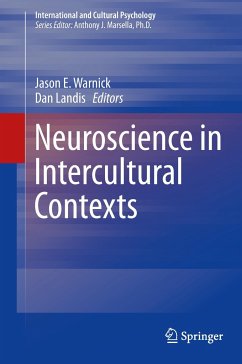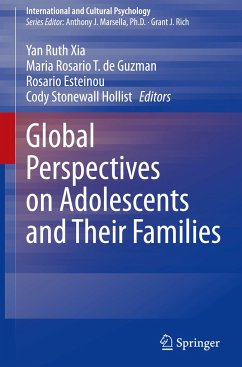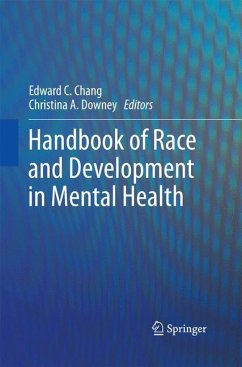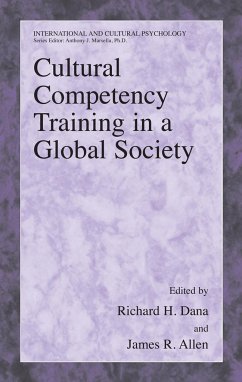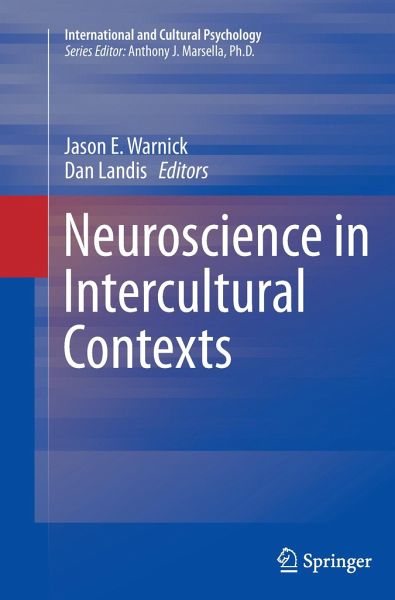
Neuroscience in Intercultural Contexts
Versandkostenfrei!
Versandfertig in 6-10 Tagen
76,99 €
inkl. MwSt.

PAYBACK Punkte
38 °P sammeln!
This breakthrough volume brings together cultural neuroscience and intercultural relations in an expansive presentation. Its selected topics in reasoning, memory, and other key cognitive areas bridge the neuroscience behind culture-related phenomena with the complex social processes involved in seeing the world through the perspective of others. Coverage ranges beyond the familiar paradigms of acculturation and cultural differences to propose new ideas of potential benefit to the new generation of immigrants, negotiators, executives, and other travelers. Taken together, these chapters offer a ...
This breakthrough volume brings together cultural neuroscience and intercultural relations in an expansive presentation. Its selected topics in reasoning, memory, and other key cognitive areas bridge the neuroscience behind culture-related phenomena with the complex social processes involved in seeing the world through the perspective of others. Coverage ranges beyond the familiar paradigms of acculturation and cultural differences to propose new ideas of potential benefit to the new generation of immigrants, negotiators, executives, and other travelers. Taken together, these chapters offer a deeper understanding of issues that can only become more important as the world becomes smaller and our global family larger.
Among the topics featured:
Intergroup relationship and empathy for others' pain: a social neuroscience approach.The neuroscience of bilingualism: cross-linguistic influences and cognitive effects.Cross-cultural reading the mind in the eyes and its consequences for international relations. Implications of behavioral and neuroscience research for cross-cultural training.Intercultural relations and the perceptual brain: a cognitive neuroscience perspective.How social dynamics shape our understanding of reality.
With its elegant perspectives and empirical depth, Neuroscience in Intercultural Contexts is a forward-looking reference for researchers in the cultural sciences (cross-cultural psychologists, anthropologists, etc.) and in social, affective, and cognitive neuroscience.
Among the topics featured:
Intergroup relationship and empathy for others' pain: a social neuroscience approach.The neuroscience of bilingualism: cross-linguistic influences and cognitive effects.Cross-cultural reading the mind in the eyes and its consequences for international relations. Implications of behavioral and neuroscience research for cross-cultural training.Intercultural relations and the perceptual brain: a cognitive neuroscience perspective.How social dynamics shape our understanding of reality.
With its elegant perspectives and empirical depth, Neuroscience in Intercultural Contexts is a forward-looking reference for researchers in the cultural sciences (cross-cultural psychologists, anthropologists, etc.) and in social, affective, and cognitive neuroscience.





